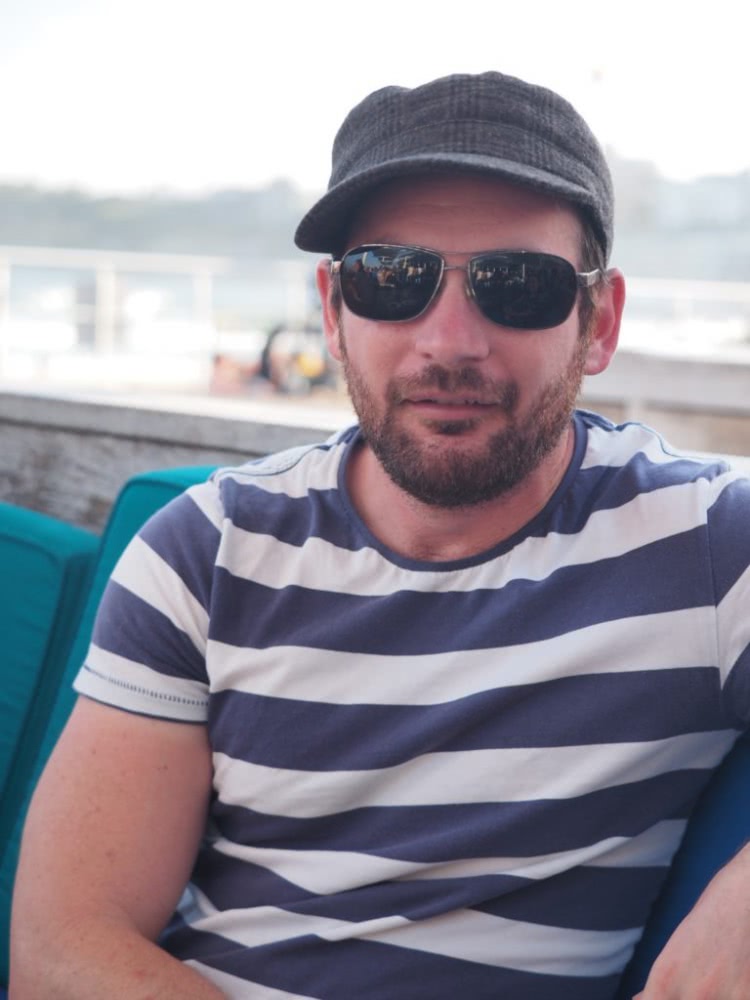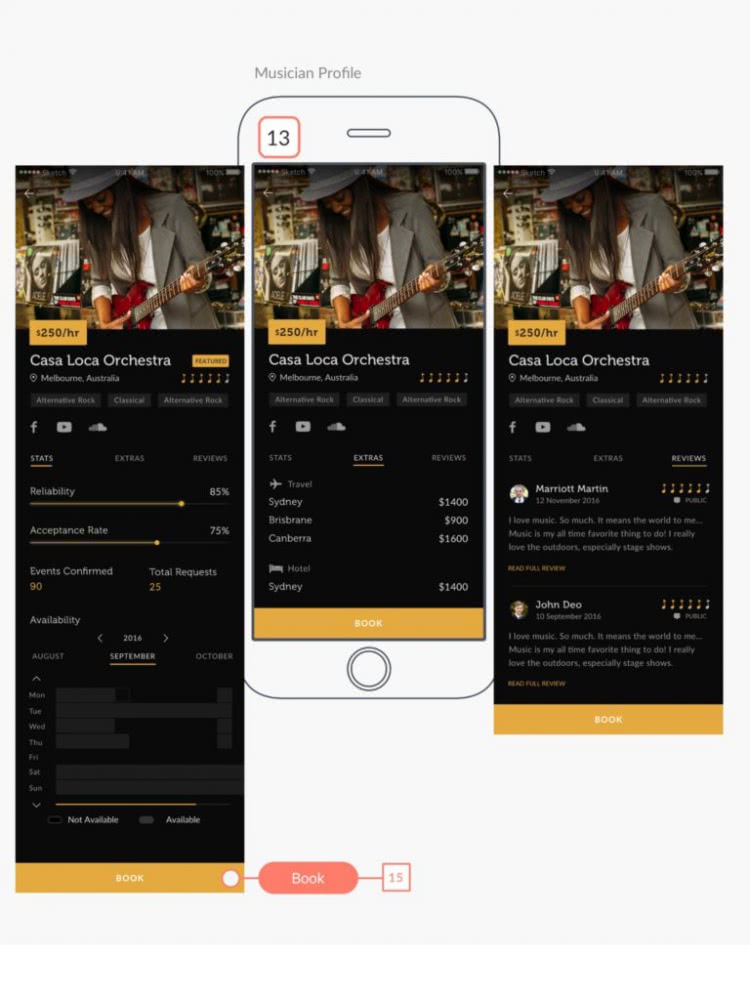Meet the co-founder of Six8, the Aussie start-up making it easy to book bands

Keith Sue is the polar opposite of what you’d expect a tech startup founder to be. Earlier this year, the ex-research scholar and his friend Saurabh Das launched Six8, the platform making it easy to find and book a band – and for bands to find gigs and be paid for them at a rate of their choosing.
Keith and Saurabh had been throwing the idea for Six8 around for two years, but since registering the company last June, they’ve built a community in and around the platform that’s been lauded by City of Sydney’s Hugh Nichols, Live Music Office’s John Wardle and Hannah Crofts from local exports All Our Exes Live In Texas.
Perhaps it’s because the pair see Six8 as more of a community than a tech company – or perhaps it’s their genuine ambition to nurture the live music sector on a local and global level – but they’re changing the predisposition of what a tech startup and a band booking look like, one live show at a time.
TIO caught up with Keith to chat about how and why Six8 came to be, his plans for global expansion and why launching in Sydney was so important.
Where were you when you first came up with Six8?
It‘s been a bit of a journey coming to the idea.
Saurabh and I – he’s my business partner and co-owner – we’ve had a range of conversations around where we think people and society are going and how we’ve lost a bit of community. We wanted to try and make things a bit more real again and get away from interacting in pretend spaces or online.
I guess independently we had a couple of challenges around the live music space. Saurabh was probably on the host side if you think about Six8 now. He was keen to bring a live band into his home for a cocktail party and couldn’t actually find a way to be able to do that. The live music space is quite opaque unless you know people in it.

Keith Sue
I was living in Zurich Switzerland and I was playing ukulele a bit (laughs). I played with this little jazz jam that happened every Monday night and there was this one guy, a great saxophonist from New Orleans, he was brilliant. But because he was in this foreign country he couldn’t actually get gigs, he had no network.
It’s just such an opaque industry, there’s a black curtain across it. If there’s a guy who lives next door to me, short of actually going next door to talk to him, I’d have no idea a) how to book that person or b) how much it costs. Unless you know someone who knows someone in this convoluted industry, it’s very difficult.
It was a combination of a few things that Saurabh and I had conversations about, and it got us thinking, ‘we should do something about this.’
There are so many artists that you can book if you go through an agency, but a lot of them aren’t going to play your cocktail party in your house. Six8 could be seen as a booking agency in itself. Do you think it could make the role of a band booker redundant?
The platform certainly sits in between a booker and an agent, we kind of sit along those two current areas in the industry. We’re not trying to come in and destroy those industries. I come from a more positive sub-game. If you change people’s thought around the culture, it helps the entire industry.
If we’re going to save live music in a place like Sydney, in Australia, and more broadly around the world, we need to hook it more into people’s identity. For me to host a live musician in my house, we’re going to hear their story and start to understand where they’re coming from. If that becomes a part of my identity, I’m probably more likely to head out and see a show that’s been put on by an agent or a promoter. It’s about increasing the pie than taking slices of it.
There’s two things that excite me: putting music in places where it hasn’t been before and for artists, it’s about freedom. If they don’t have a booking agent, that can be a real difficulty, this gives them an avenue to actually get paid for what they do.
What’s the user/platform revenue split right now?
We get a 10% booking fee right now to keep our business running. It’s our aim to push that down to 5%.

How far off are your international aspirations for Six8?
We want to move fairly aggressively. From a business point of view, you can’t copyright an idea; someone could come along and make another Six8 fairly quickly.
But more from a moral point of view, there’s an interest for us to move quickly to support the people who want to jump on board. One of the founding motivations for me was to allow artists to travel and work overseas.
I want to be able to see someone travel to Amsterdam next weekend to get gigs, even though they don’t know anyone in the city, because they have a reputation that they’ve built up on an international platform.
Our timeline at the moment is looking as though it will be around the beginning of next year but that’s contingent on how well the expansion goes in Australia.
How close are you to rolling out Six8 nationally?
Sydney is really our primary focus at the moment but we’ll move down to Melbourne around the end of June and do a big push down there and then we’ll push out to broader Australia in the following months.
When you say “move” do you mean you’re actually relocating?
We both are. We’re living the life of nomads at the moment. We both lived in Bondi up until March this year and we decided to put all of our stuff into storage to go from Airbnb to Airbnb.
Will you move territory by territory along with the platform?
That is the idea. It’s more a community than it is a tech platform and each of these areas that we launch in all have their own musical subcultures, so when we move to a place like Berlin and do a German launch or a place like Amsterdam for a launch in the Netherlands, it’s not as simple as just transplanting a platform. You need to integrate it into this living organism, which is a musical culture, and build these communities in a different country.
Fortunately for us that’s an incredibly fun job to move overseas, listen to live music and get people excited about live music again – there’s much harder jobs in the world to do.
Whether launching in Sydney was intentional or not, it’s one city that needs Six8.
That was part of the conversation and part of the development of Six8 was what was going on in Sydney. We wanted to, if we could, break down some of the barriers for arts and culture and specifically music in the city.
At the beginning of the year we organised a Q&A event (Trajectories) at The Basement where we hot a group of six panel members (Hugh Nichols, Kerri Glasscock, John Wardle, Nathan Farrell, Keith Sue, and Hannah Crofts) down to talk about what’s going on with live music in Sydney and how we can move it in a more positive direction. That really informed how we moved forward with the development of Six8.
That was really important to get the theme about live music here but also to talk to [the panellists] about how we best go about breaking walls down and help the industry. You need to be informed, you need to get in and have a chat to people that know the intricacies of what’s going on to identify the small part that you can play to really help to make a more positive live music industry.
For more information on Six8 head to six8.com.au
This article originally appeared on The Industry Observer, which is now part of The Music Network.






























